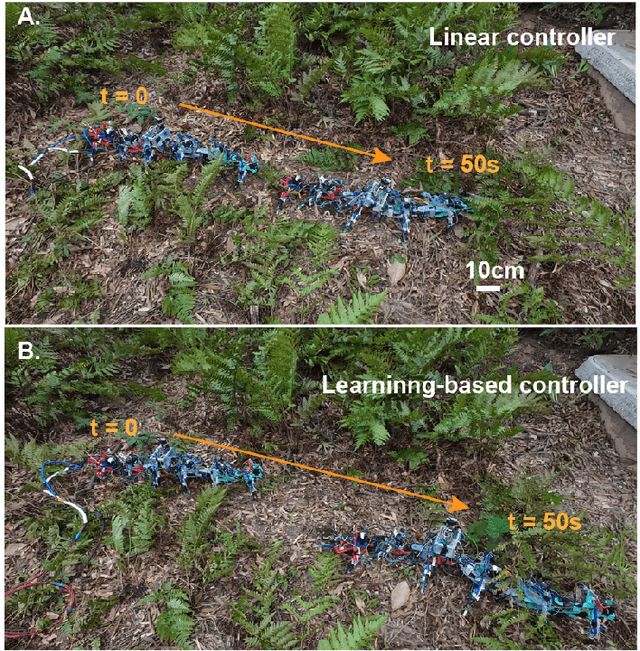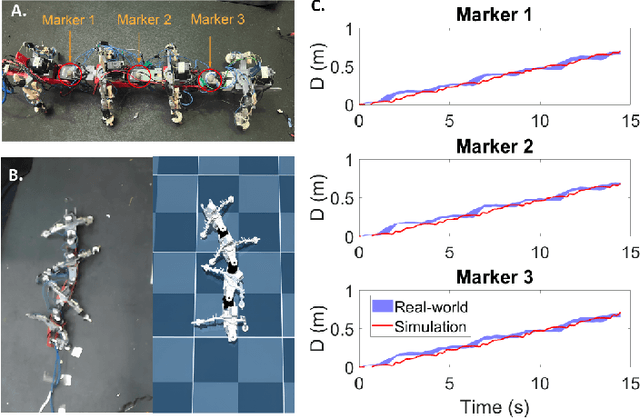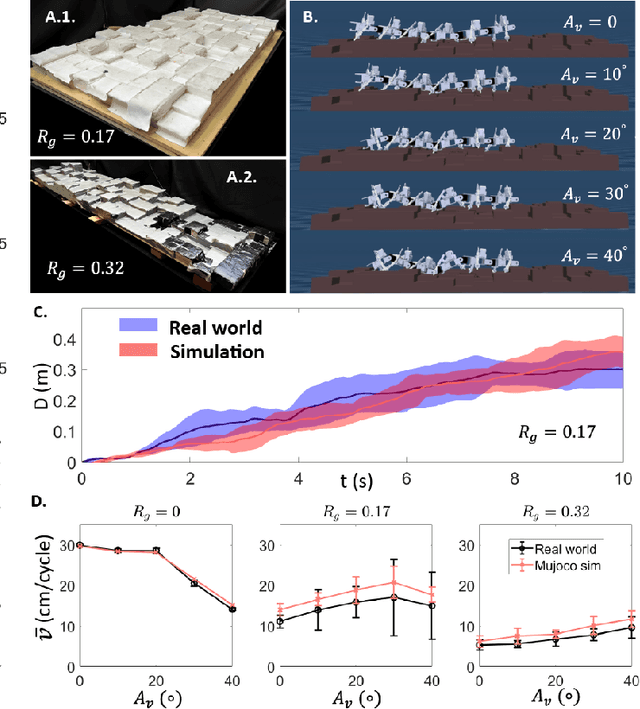Learning to enhance multi-legged robot on rugged landscapes
Paper and Code
Sep 14, 2024



Navigating rugged landscapes poses significant challenges for legged locomotion. Multi-legged robots (those with 6 and greater) offer a promising solution for such terrains, largely due to their inherent high static stability, resulting from a low center of mass and wide base of support. Such systems require minimal effort to maintain balance. Recent studies have shown that a linear controller, which modulates the vertical body undulation of a multi-legged robot in response to shifts in terrain roughness, can ensure reliable mobility on challenging terrains. However, the potential of a learning-based control framework that adjusts multiple parameters to address terrain heterogeneity remains underexplored. We posit that the development of an experimentally validated physics-based simulator for this robot can rapidly advance capabilities by allowing wide parameter space exploration. Here we develop a MuJoCo-based simulator tailored to this robotic platform and use the simulation to develop a reinforcement learning-based control framework that dynamically adjusts horizontal and vertical body undulation, and limb stepping in real-time. Our approach improves robot performance in simulation, laboratory experiments, and outdoor tests. Notably, our real-world experiments reveal that the learning-based controller achieves a 30\% to 50\% increase in speed compared to a linear controller, which only modulates vertical body waves. We hypothesize that the superior performance of the learning-based controller arises from its ability to adjust multiple parameters simultaneously, including limb stepping, horizontal body wave, and vertical body wave.
 Add to Chrome
Add to Chrome Add to Firefox
Add to Firefox Add to Edge
Add to Edge